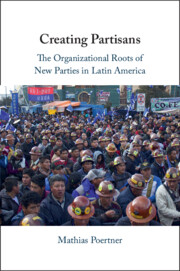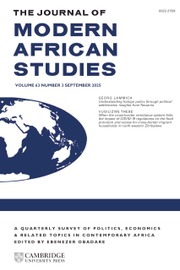The Autocratic Voter
In The Autocratic Voter, Natalie Wenzell Letsa explores the motivations behind why citizens in electoral autocracies choose to participate in politics and support political parties. With electoral autocracies becoming the most common type of regime in the modern world, Letsa challenges the dominant materialist framework for understanding political behavior and presents an alternative view of partisanship as a social identity. Her book argues that despite the irrationality and obstacles to participating in autocratic politics, people are socialized into becoming partisans by their partisan friends and family. This socialization process has a cascading effect that can either facilitate support for regime change and democracy or sustain the status quo. By delving into the social identity of partisanship, The Autocratic Voter offers a new perspective on political behavior in electoral autocracies that has the potential to shape the future of these regimes.
- Uses original survey data to measure social networks and political influence within social networks in Africa
- Combines qualitative and quantitative data from multiple sources to construct and test a new theory of partisanship
- Provides unique insight into the motivations of ordinary people involved in autocratic politics
Reviews & endorsements
'In The Autocratic Voter, Natalie Letsa offers a compelling, fresh perspective on political engagement under dictatorship. Challenging dominant views of political behavior rooted in material considerations, Letsa explores how partisanship in electoral autocracies emerges as a powerful social identity shaped by family and community networks. Drawing on rich qualitative and survey data from Cameroon, Letsa provides an insightful framework to understand political engagement's social and geographic basis in settings where electoral participation rarely brings change. It is an important read for those interested in the dynamics of partisanship in authoritarian politics and the social forces that sustain and undermine them. Guy Grossman, University of Pennsylvania
Product details
August 2025Hardback
9781009639859
278 pages
229 × 152 mm
Not yet published - available from July 2025
Table of Contents
- 1. Partisanship in electoral autocracies
- 2. Social networks, political geography, and partisan socialization
- 3. The case of Cameroon
- 4. Opposition and ruling party partisanship as social identities
- 5. Pathways to partisanship
- 6. Political influence within networks
- 7. Processes of political socialization
- 8. The political geography of electoral autocracies
- 9. Political realities in party strongholds
- 10. The power and importance of partisan identities
- Appendix 1. Full sampling schedule of public opinion survey
- Appendix 2. Life histories of Henri, Titus, Patience and Justo
- Bibliography.








